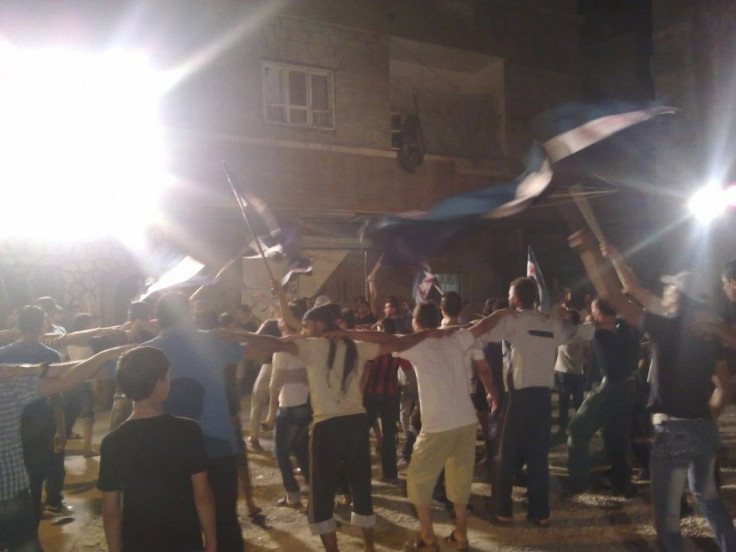Aleppo At Center Of Syrian War As Regime Suppresses Revolt In Damascus

The Syrian government appeared to be reasserting its control over most of Damascus Tuesday after a week of heavy clashes in the capital, even as fighting reached the gates of the ancient quarter of Aleppo in the north, the country's most populous city and one largely free of conflict until recently.
Government helicopter gunships attacked Aleppo, the Local Coordination Committees, a network of on-the-ground activists, told NBC News. The Associated Press reported that warplanes circled in the air around the city, while the British Broadcasting Corp., citing one of its reporters near the area, said that fighter jets had bombed eastern parts of Aleppo.
The FSA is on the streets like ants, an opposition activist in Aleppo told the Wall Street Journal, referring to the fighters from the Free Syrian Army of military defectors and local fighters. The source said rebels had gained control of the Salahuddin neighborhood in the city's southwest.
The battle has spread from neighborhoods in the northeast and southwest of the city to previously untouched areas like Firdous in the south and Arkoub closer to the center, local activists and the Britain-based Syrian Observatory for Human Rights said.
At least 20 people have been killed in the fighting in Aleppo, the Local Coordination Committees told NBC.
Opposition activist Mohammed Saeed has estimated that the rebels are holding large chunks of the city and the government has responded with attack helicopters - key to their retaking of Damascus over the last few days.
Circling fighter jets have also been breaking the sound barrier overhead in an apparent attempt to cow the fighters, the AP reported.
It's like a real war zone over here, there are street battles over large parts of the city, Saeed said, with the sound of gunfire and explosions audible over the phone. Aleppo has joined Homs and Hama and other revolutionary cities.
On Sunday, a newly formed alliance of rebel groups called the Brigade for Unification announced an operation to take Aleppo, the country's largest city with about 3 million people. While the rebels have not shown themselves able to hold neighborhoods for any significant period, the continued fighting highlights the government's inability to pin down the lightly armed opposition forces.
Prisoners in Aleppo's jail also rioted overnight and activists said at least eight have been killed by government forces. Another prison riot in the city of Homs has been quelled with tear gas and live ammunition.
In Damascus, in contrast, relative calm settled in after more than a week of battles in several neighborhoods and a bombing that killed four senior figures of the regime.
Some shops in the city center reopened for the first time in days, the Journal reported. Traffic appeared in many parts of the city. Damascenes rushed to buy bread and water and purchase airtime for mobile telephones. By nightfall, streets were empty. Taxi drivers turned down rides. Checkpoints of pro-regime forces were seen on every other street.
U.S. Secretary of State Hillary Clinton -- citing what she called an all-out effort to take over Aleppo -- said Tuesday that the Syrian rebels' recent territorial gains would eventually lead to the creation of an opposition safe haven inside Syria.
Washington continues to play down the prospect of the U.S. getting involved in securing such a haven. The Syrian government has repeatedly warned that any attempt by Western countries, Turkey and Gulf Arab states to support the establishment of havens would be regarded as an act of war. On Monday the Syrian regime said it was prepared to use its stockpiles of chemical weapons against any external aggression.
© Copyright IBTimes 2025. All rights reserved.





















